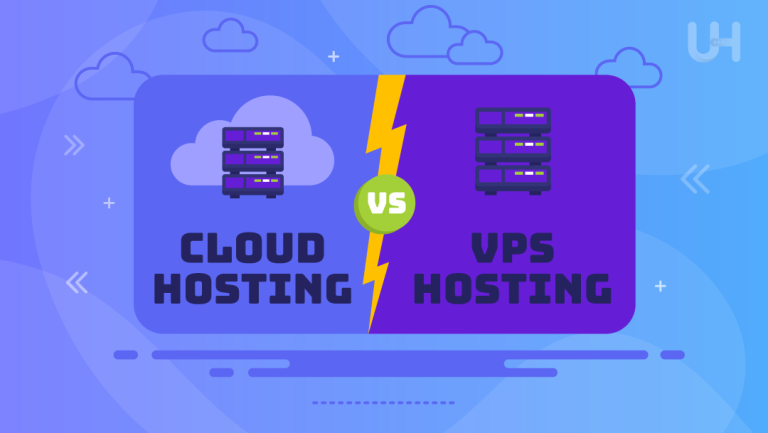Communication has changed significantly in today’s digitally connected landscape, moving past conventional phone systems. At the forefront of this evolution is Voice over Internet Protocol (VoIP), a technology enabling businesses and individuals to communicate over the Internet. Central to this technology is the VoIP server, which facilitates efficient and seamless communication while minimizing infrastructure costs.
In this article, we will delve into the fundamentals of a Voice over Internet Protocol server, explaining its functionality and highlighting its importance in contemporary communication.
What is a VoIP Server?
A Voice over Internet Protocol (VoIP) server is a crucial infrastructure component that facilitates voice and multimedia communication via the Internet rather than relying on traditional telephone lines. The VoIP server is responsible for routing calls between users, managing user accounts, and overseeing all aspects of VoIP service delivery to ensure seamless and efficient communication.
Businesses increasingly adopt Voice over Internet Protocol servers due to their potential for significant cost savings on telephony bills while still providing high-quality audio and video communication. By leveraging VoIP technology, organizations can engage in voice calls, video conferencing, and instant messaging, all integrated into a single platform. This versatility enhances communication and fosters collaboration among employees, regardless of their geographic locations. VoIP servers come in two primary models:
On-Premise VoIP Servers
On-premise VoIP Servers Involve installing dedicated hardware and software within the organization’s physical premises. This approach gives businesses complete control over their communication systems, including security, database management, and customization options. However, it requires a significant upfront investment in infrastructure and ongoing maintenance by in-house IT staff.
Cloud-Based VoIP Servers
Cloud-based VoIP Servers are hosted remotely by a service provider. This model allows businesses to access VoIP services like Openphone, via the Internet without requiring extensive hardware investments. Cloud-based solutions offer greater scalability, enabling organizations to adjust their services as they grow or change quickly. Moreover, they typically come with built-in redundancy and security measures, alleviating data loss and system downtime concerns.
Both types of VoIP servers aim to enhance operational efficiency and flexibility in communication, ultimately making them a popular choice for businesses looking to modernize their telephony systems.
How Does a VoIP Server Work?

A VoIP (Voice over Internet Protocol) server plays a crucial role in enabling voice communication by converting analog voice signals into digital data packets that can be transmitted over an IP network. Here’s a more detailed breakdown of the entire process:
Call Initiation
The process begins when a user calls using a VoIP device. This could be an IP phone, a computer equipped with VoIP software, or a smartphone with an application designed for VoIP communication. The user inputs the recipient’s number or selects a contact.
Signal Conversion
Once the call is initiated, the VoIP device captures the user’s voice as an analog signal. The VoIP server then converts this analog signal into digital data packets. This conversion is typically achieved using codecs (coder-decoder) that compress and encode the audio data for efficient transmission while maintaining sound quality.
Routing
After the voice signals have been converted into digital packets, the VoIP server determines the optimal routing path for the call. This involves identifying the location of the recipient, which could be another VoIP user or a traditional landline or mobile phone. The server uses various algorithms and protocols to establish the best route, considering network congestion and other factors.
Data Transmission
The digital packets are transmitted over the internet using specific communication protocols, such as SIP (Session Initiation Protocol) to establish the call and RTP (Real-time Transport Protocol) to deliver the audio streams. The packets travel through various routers and switches in the network until they reach their destination.
Reception
Upon arrival at the recipient’s device, the VoIP server receives the data packets and reconstructs them into audio signals. This process includes decoding and decompressing the packets, allowing the recipient to hear the caller’s voice in real-time.
This comprehensive system is designed to facilitate low-latency and high-throughput communication and ensure data privacy and a high-quality sound experience, provided the internet connection remains stable, and the bandwidth is sufficient to handle the voice data. VoIP systems supported by appropriate VoIP equipment, can utilize quality-of-service techniques to prioritize voice traffic and minimize disruptions in network instability.
Benefits of Using a VoIP Server
Here are some key benefits of using a VoIP server:
- Cost Efficiency: VoIP servers drastically reduce communication costs compared to traditional phone systems. Long-distance and international calls are significantly cheaper.
- Scalability: VoIP servers can handle multiple users, making them ideal for businesses of all sizes. You can scale up as your organization grows.
- Flexibility: With an internet connection, users can access VoIP services from anywhere, making it perfect for remote and hybrid work environments.
- Advanced Features: VoIP servers offer features like voicemail, video conferencing, call recording, and integration with CRM software tools that are typically unavailable with traditional telephony.
- Easy Integration: Many VoIP server open source allow easy integration with existing communication tools, saving businesses time and resources.
Open Source VoIP Servers: A Game Changer
Open-source Voice over Internet Protocol servers provide flexibility and customization for businesses seeking cost-effective solutions. Popular platforms like Asterisk, FreeSWITCH, and Kamailio allow users to tailor their communication systems to their needs.
Advantages of Open-Source VoIP Servers
- Cost savings on licensing fees.
- Customization to meet unique business requirements.
- Community support and regular updates.
Power Your VoIP Solutions with Reliable Hosting!
Looking for a hosting solution that ensures optimal performance for your VoIP server? Explore UltaHost’s IP Dedicated Server Hosting to enjoy unmatched speed, reliability, and security. Perfect for handling VoIP traffic and ensuring seamless communication.
Hosting Your VoIP Server: On-Premise vs Cloud
Deciding between on-premise Voice over Internet Protocol server hosting and cloud solutions depends on your business needs.
On-Premise Hosting
On-premise hosting necessitates specific hardware components and involves local management for optimal operation. This setup gives users greater control over their resources and configurations, allowing for tailored solutions that meet individual needs.
However, it is essential to note that this level of control typically comes with higher initial costs, as investing in the necessary hardware and infrastructure can be significant.
Cloud-Based Hosting
Service providers are responsible for managing the underlying infrastructure of their hosting solutions, which is crucial for maintaining reliability and ensuring robust security measures. VPS hosting, such as SSH VPS Hosting, offers dedicated resources and greater control than shared hosting environments, making it ideal for applications requiring consistent performance and security.
This solution uses data center virtualization to provide users private server space on a shared physical server. It allows for customization, software installation, and high uptime for VoIP services, enhancing communication and user experience while ensuring data security and data privacy through advanced protocols.
Why Invest in VoIP Server Hosting?
A VoIP server requires reliable hosting solutions to ensure optimal performance. Many businesses opt for specialized hosting tailored specifically for Voice over Internet Protocol servers. Such hosting services are designed to enhance the efficiency and effectiveness of VoIP communications, providing a stable and secure environment for voice data transmission. Here are some reasons why to invest in Voice over Internet Protocol servers:
- Performance: Dedicated hosting servers ensure low latency and high-speed connectivity, which is critical for uninterrupted communication.
- Security: You can protect sensitive communication data with DDoS attacks.
- Scalability: Hosting solutions like High RAM VPS support growing business demands.
- Ease of Management: Hosting services handle updates and backups, allowing businesses to focus on their core operations.
Real-World Applications of VoIP Servers
Here are a few real-world applications of Voice over Internet Protocol servers:
- Business Communication: Companies use Voice over Internet Protocol servers to streamline internal and external communications, saving costs while offering advanced features.
- Customer Support: Call centers rely on VoIP servers for features like automatic call distribution and customer relationship management integration.
- Remote Work: Voice-over Internet Protocol servers enable remote teams to stay connected through voice, video, and messaging platforms.
- Personal Use: Individual users also benefit from free or low-cost communication via VoIP technology apps like Skype and WhatsApp.
Conclusion
A Voice over Internet Protocol server is the backbone of modern Internet-based communication, offering flexibility, cost efficiency, and advanced features. Whether you choose on-premise or cloud hosting, investing in the right hosting solution is crucial for optimal performance.
Boost your VoIP’s performance with High-Speed VPS Hosting from UltaHost. Perfect for VoIP Servers, it ensures lightning-fast load times and scalability to handle growing traffic, delivering a seamless experience for your audience.
FAQ
What is a VoIP server?
A VoIP server is a system that enables internet-based voice communication by converting analog voice signals into digital data packets.
How does an open-source VoIP server work?
Open-source VoIP servers like Asterisk allow businesses to customize and manage their communication systems without paying licensing fees.
What are the benefits of hosting a VoIP server in the cloud?
Cloud hosting offers scalability, security, and ease of management, with solutions like VPS Hosting providing the perfect environment for VoIP servers.
Is VoIP better than traditional telephony?
Yes, VoIP offers lower costs, flexibility, and advanced features compared to traditional phone systems.
Can I use VoIP without a server?
No, a server is essential for managing VoIP communication, routing calls, and ensuring reliable connectivity.
What is the best hosting option for VoIP servers?
Dedicated Hosting is recommended for its reliability and security.
Is VoIP secure for business communication?
Yes, with proper hosting solutions, VoIP can be secure and reliable.












